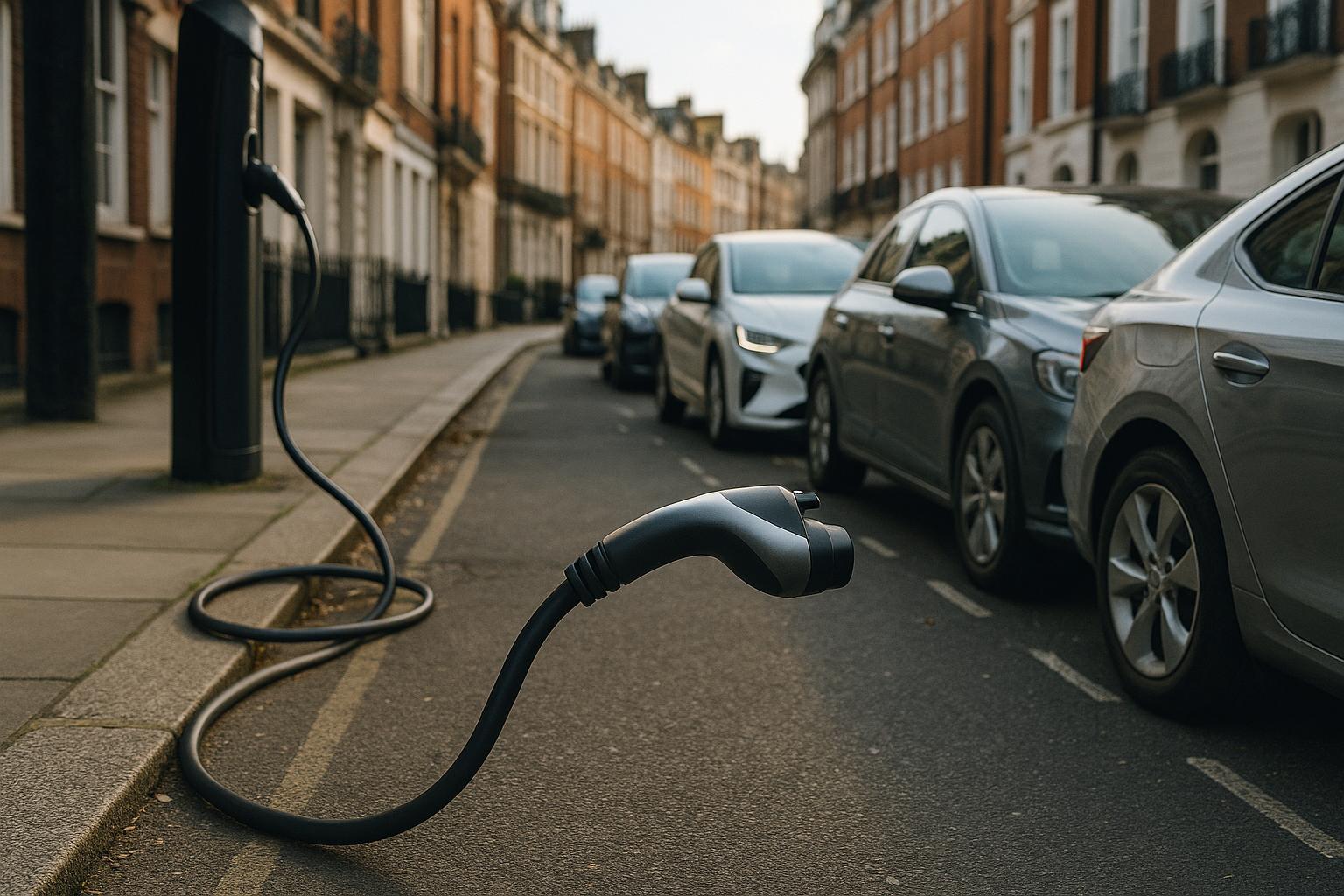Sales of new electric cars in the UK surged to a record high in September 2025, reflecting a significant shift in consumer preference and government policy support. Industry figures from the Society of Motor Manufacturers and Traders (SMMT) reveal that 72,779 pure battery electric vehicles (BEVs) were registered last month, marking a 29.1% increase compared to the same month in 2024. Electric cars accounted for 23.3% of all new car registrations, up from 20.5% the previous September, underscoring the growing dominance of zero-emission vehicles in the market.
This surge was partly driven by the Department for Transport’s (DfT) Electric Car Grant scheme, a £650 million initiative offering discounts of £1,500 or £3,750 depending on the vehicle’s sustainability credentials. The grant was fully operational for the first time throughout September, making electric cars more affordable and accessible to a broader range of consumers. The government’s intervention came at a critical moment for the industry—September is traditionally the busiest month for car sales due to the introduction of new registration plates, which typically stimulate buyer activity.
According to Mike Hawes, SMMT chief executive, the growth of electrified vehicles is powering overall market expansion after a sluggish summer, highlighting that while demand still lags behind ambitious targets, the industry’s massive investments are beginning to pay off. He emphasised that the Electric Car Grant is helping to dismantle one of the main barriers to adoption. However, he cautioned that further success hinges on resolving remaining challenges such as infrastructure development and energy costs—a sentiment echoed by many industry observers.
The UK’s zero-emission vehicle (ZEV) mandate, which requires at least 28% of each manufacturer’s new car sales to be zero emission in 2025, generally means pure electric vehicles, thus contributing to the increased uptake. The government’s policy signals a firm commitment to environmental targets and a decarbonised transport sector.
Supporting data from other sources confirms that September 2025 represented the best monthly performance for new car registrations since 2020, with total registrations reaching 312,887—a 13.7% increase year-on-year. Notably, electrified vehicles, including hybrids and BEVs, surpassed the 50% market share threshold for the first time, signaling a dramatic market transformation. However, despite these gains, private buyer demand remains a concern, with some manufacturers like Tesla reporting nearly flat growth in the UK over the past year, indicating that the market’s momentum might be uneven across different brands.
In addition to government incentives, the rise in electric vehicle sales can be attributed to greater consumer choice and manufacturer discounts on various models. The growing model variety caters to diverse consumer needs, which is essential for sustained adoption beyond early adopters. Still, an analysis by green transport research organisation New Automotive raised questions about the effectiveness of the grants, suggesting they may not be prompting additional buyers but rather incentivising those who would have purchased electric cars anyway. The Department for Transport disputed this claim, maintaining that the scheme is successfully breaking down cost barriers.
Industry stakeholders echo the importance of continued consumer education and stable support to maintain the positive trajectory. Tanya Sinclair, chief executive of Electric Vehicles UK, highlighted that adoption naturally fluctuates with seasonality, economic confidence, and perceptions around charging infrastructure, underscoring the need for consistent growth and awareness.
Meanwhile, the shift away from traditional internal combustion engine vehicles is stark. Diesel registrations fell sharply by around a third compared to the previous year, now comprising just 4% of new car sales. This decline aligns with the increasing preference for cleaner alternatives and reflects progress towards the government’s ambitious targets on vehicle emissions.
Despite the promising national figures, challenges remain, especially with the initial rollout of the Electric Car Grant reportedly marked by confusion and a chaotic launch phase earlier in the summer. Experts warned that this uncertainty may have delayed some purchases, although September’s figures suggest the market is beginning to stabilise as buyers respond to clearer incentives.
The long-term outlook for electric car adoption in the UK depends not only on continued financial support but also on improvements in charging infrastructure and reductions in energy costs. The government, industry bodies, and advocacy groups agree that addressing these factors will be crucial to sustaining market growth and achieving environmental goals.
📌 Reference Map:
- Paragraph 1 – [1], [3], [4]
- Paragraph 2 – [1], [3], [4]
- Paragraph 3 – [1]
- Paragraph 4 – [1], [4]
- Paragraph 5 – [2]
- Paragraph 6 – [1], [3], [5]
- Paragraph 7 – [1], [3], [5]
- Paragraph 8 – [1], [3], [4]
- Paragraph 9 – [6], [7], [1]
- Paragraph 10 – [1], [4]
Source: Noah Wire Services
